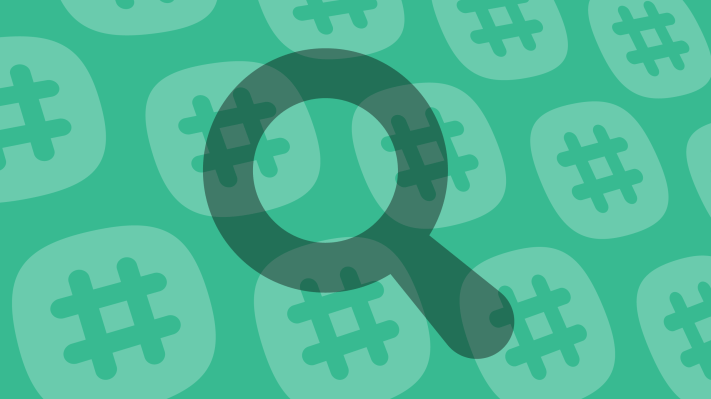As a company gets bigger and bigger, finding out the answer to some question you have in your head — like the definition of some kind of acronym or the right process to hire someone — is going to be harder and harder to find.
For Slack, which given that it’s a constant stream of communication, that’s going to be doubly true. But over time Slack wants to become a kind of lexicon of information, with everything easily accessible, and it’s starting to do that today with a big update to its search function. Now, when an employee searches for a topic, search should point them to a good person to answer that question or the channel that’s best to check for that information. Slack wants to be the entire foundation of a business, but that starts with ensuring that employees can actually be more productive instead of spending all their time digging in menus for information.
“There’s tons of info in email, but it’s in silos or other individual inboxes — and on the other side there are hundreds of Wiki products, they take too much work and get stale and aren’t comprehensive,” Noah Weiss, from Slack’s Search Learning & Intelligence group, said. “Slack, because it’s a place where people are doing work all day, there’s this collective knowledge amassing over time. We’re able to tap into that in mostly public channels.”

It’s coming out of the Search Learning & Intelligence group, which is trying to leverage all the data it has to build a smarter way to get access to all the information that comes out of a constant wave of conversations. Weiss, who was previously at Foursquare, is working on probably one of the most complicated and important problems Slack might face: jumping from a massive set of chat rooms to something that operates functionally as a base of operations for an entire organization.
Slack is a darling in Silicon Valley, and while it’s amassed 5 million DAUs and 1.5 million paying customers, it still needs to set its eyes higher on the massive companies that will propel it to an even larger business. And right now at face value it may seem that Slack’s conversational streams are chaotic and difficult to navigate — which is why this change to search, even as a first step, is critical in making it more accessible as teams get bigger and bigger.
“Maybe when you write something, he’s responsive to you but you’re not responsive to him, or you need to follow the channels you care about — we have to understand how those channels are related to each other and this different graph structure,” Weiss said. “What we had to build for this is understanding what are the topics in a company, what’s the unique vocabulary people use in an org to discuss work. It’s very different to a knowledge graph at Google, where there’s one canonical set of entities in the world.”
That problem still requires a lot of data around how people talk and what are some specific nuances and quirks to companies. It’s currently restricted to teams of 50 or more — the sweet spot where the search starts being useful, Weiss said — paying customers on standard, plus and enterprise plans. As people use it more, the algorithm should get smarter and make it easier and easier to find the right person or channel to ask a question.
“We’re really making Slack a kind of great connective tissue for even the largest organizations,” Weiss said. “Search results only get more useful with more history but also more people in channels. It becomes harder to know exactly who you talk to when companies get bigger.”
